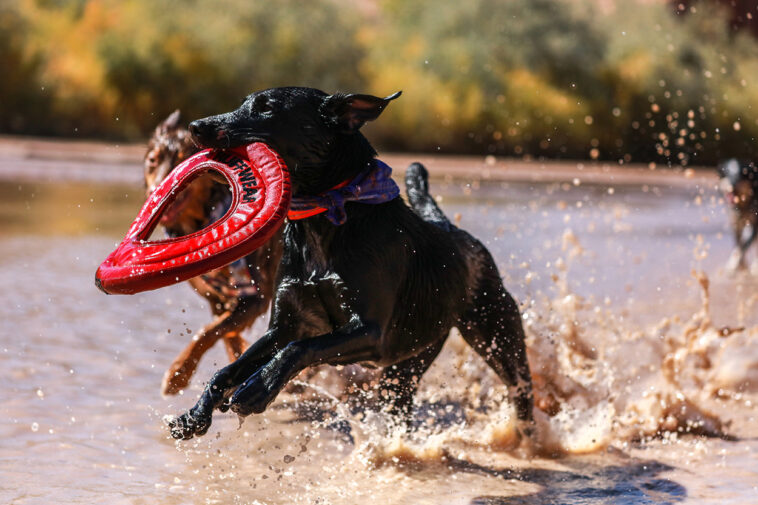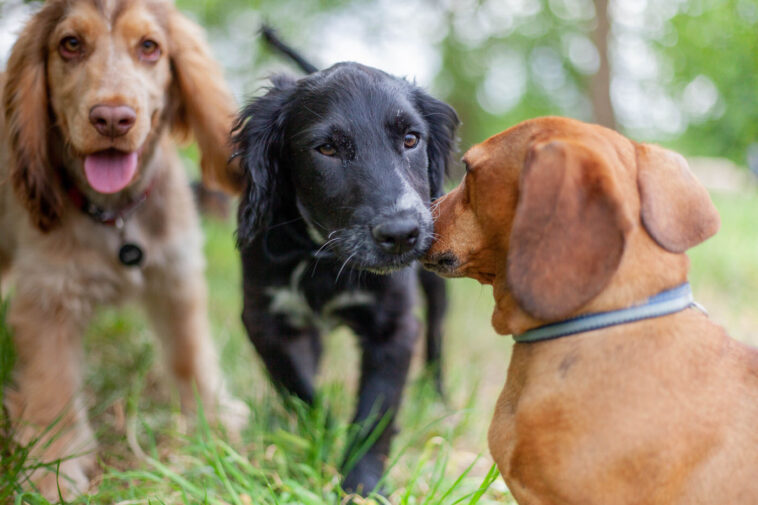Dogs have long been considered as man’s best friend. They are loyal and affectionate and can be trained to be valuable companions. However, as much as we enjoy their company, we must understand that dogs have their own needs and requirements.
One of the most fundamental of these needs is a suitable environment. In this article, we will explore the importance of a suitable environment for the welfare of dogs.
The Impact of the Environment on Dogs:

A suitable environment plays a crucial role in the health and well-being of dogs. When a dog’s environment is inadequate, it can lead to various problems, such as behavioural issues, health problems, and a diminished quality of life. Some of the effects of an unsuitable environment on dogs include:
- Behavioural Problems
When dogs are kept in an unsuitable environment, they may become anxious, stressed, or aggressive. This is particularly true for dogs that are confined in small spaces for extended periods.
- Health Problems
Dogs that are kept in an unsuitable environments may suffer from health problems such as respiratory problems, skin infections, and obesity. For example, dogs that are confined in dirty or damp environments are more likely to develop respiratory problems.
- Diminished Quality of Life
Dogs that do not have access to adequate food, water, and exercise are likely to experience a diminished quality of life. They may become lethargic, disinterested in activities, and depressed.
The Components of a Suitable Environment

A suitable environment for dogs should encompass various components. These components include:
- Space – Dogs require sufficient space to move around, play, and exercise. The amount of space required will depend on the size and breed of the dog. For example, larger dogs will require more space than smaller ones.
- Shelter – Dogs require a shelter that will protect them from the elements, such as rain, snow, and extreme heat. The shelter should also provide a comfortable resting place for the dog.
- Exercise – Dogs require regular exercise to stay healthy and active. The amount of exercise required will depend on the breed and age of the dog.
- Nutrition – Dogs require a balanced and nutritious diet to maintain their health. The diet should include a variety of proteins, fats, and carbohydrates.
- Socialization – Dogs are social animals and require interaction with other dogs and humans. They should be provided opportunities to interact with other dogs and humans in a safe and controlled environment.
The Importance of Socialization

Socialization is a critical component of a suitable environment for dogs. Socialization refers to the process of introducing dogs to other dogs and humans to help them develop social skills and confidence. Socialization is essential for the following reasons:
- Improved Behaviour
Socialized dogs are less likely to exhibit aggressive or fearful behaviour. They are more likely to be well-behaved, obedient, and friendly.
- Improved Health
Socialized dogs are less likely to develop stress-related health problems. They are also more likely to receive prompt medical attention when required.
- Improved Quality of Life
Socialized dogs enjoy a higher quality of life as they are able to participate in a wider range of activities and experiences.
The Role of Owners and Caregivers

Owners and caregivers play a critical role in providing a suitable environment for dogs. They are responsible for providing the necessary resources and creating an environment that is safe, comfortable, and conducive to the well-being of dogs. The following are some of the responsibilities of owners and caregivers:
- Providing Adequate Space
Providing adequate space is essential for a dog’s well-being. Dogs need space to move around, play and exercise to maintain their physical health and prevent obesity. The amount of space required will depend on the size and breed of the dog. Larger dogs, such as Great Danes and Mastiffs, will require more space than smaller dogs, such as Chihuahuas or Pomeranians.
When providing space for dogs, it is important to consider the following:

- Indoor Space
Dogs should have a designated indoor space that is comfortable and safe. This can be a crate or a designated room where the dog can rest and feel secure. The indoor space should be free from drafts and provide adequate ventilation.
- Outdoor Space
Dogs also need outdoor space to run, play, and explore. The outdoor space should be secure, free from hazards, and provide access to shade and water. Fencing can be installed to prevent the dog from escaping or wandering off. You can visit and buy modern safety devices like invisible or underground dog fences from Petstop.com.
- Multiple Spaces
Providing dogs with multiple spaces can help prevent boredom and anxiety. Dogs can have access to indoor and outdoor spaces and a designated area for feeding and water.
- Providing Adequate Shelter
Providing adequate shelter is another important factor in ensuring the welfare of dogs. The shelter offers protection from the elements and a safe place for dogs to rest and relax. A suitable shelter should protect from the sun, wind, rain, and extreme temperatures. It should also be large enough to accommodate the size and breed of the dog.
- Providing Adequate Exercise
Owners and caregivers should provide regular exercise opportunities for their dogs. Exercise is essential for a dog’s physical and mental well-being. The type and amount of exercise required will depend on the dog’s age, size, and breed. For example, high-energy breeds such as Border Collies and Huskies require more exercise than low-energy breeds like Bulldogs.
- Providing Adequate Nutrition
Owners and caregivers should ensure that their dogs receive a balanced and nutritious diet. The diet should include a variety of proteins, fats, and carbohydrates to meet the dog’s nutritional requirements. In addition, owners should make sure that their dogs have access to clean and fresh water at all times.
- Providing Adequate Socialization
Owners and caregivers should provide opportunities for their dogs to interact with other dogs and humans in a safe and controlled environment. This can be achieved through regular visits to dog parks, playdates with other dogs, and obedience training classes.
- Providing Medical Care
Owners and caregivers should take their dogs for regular check-ups and vaccinations to ensure their overall health and well-being. They should also seek prompt medical attention if their dogs exhibit any signs of illness or injury.
Providing Mental Stimulation – Owners and caregivers should provide mental stimulation activities for their dogs to keep them mentally stimulated and engaged. This can include puzzle toys, training exercises, and interactive games.
Conclusion

In conclusion, a suitable environment is critical for the welfare of dogs. Owners and caregivers are responsible for providing their dogs with a safe, comfortable, and stimulating environment that meets their physical and mental needs.
A suitable environment includes adequate space, shelter, exercise, nutrition, socialization, and medical care. When dogs have access to these components, they are more likely to live happy, healthy, and fulfilling lives.





